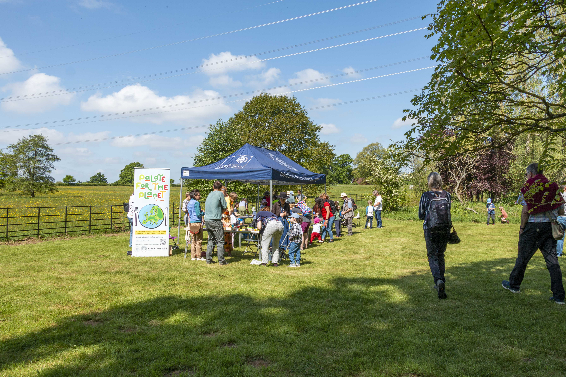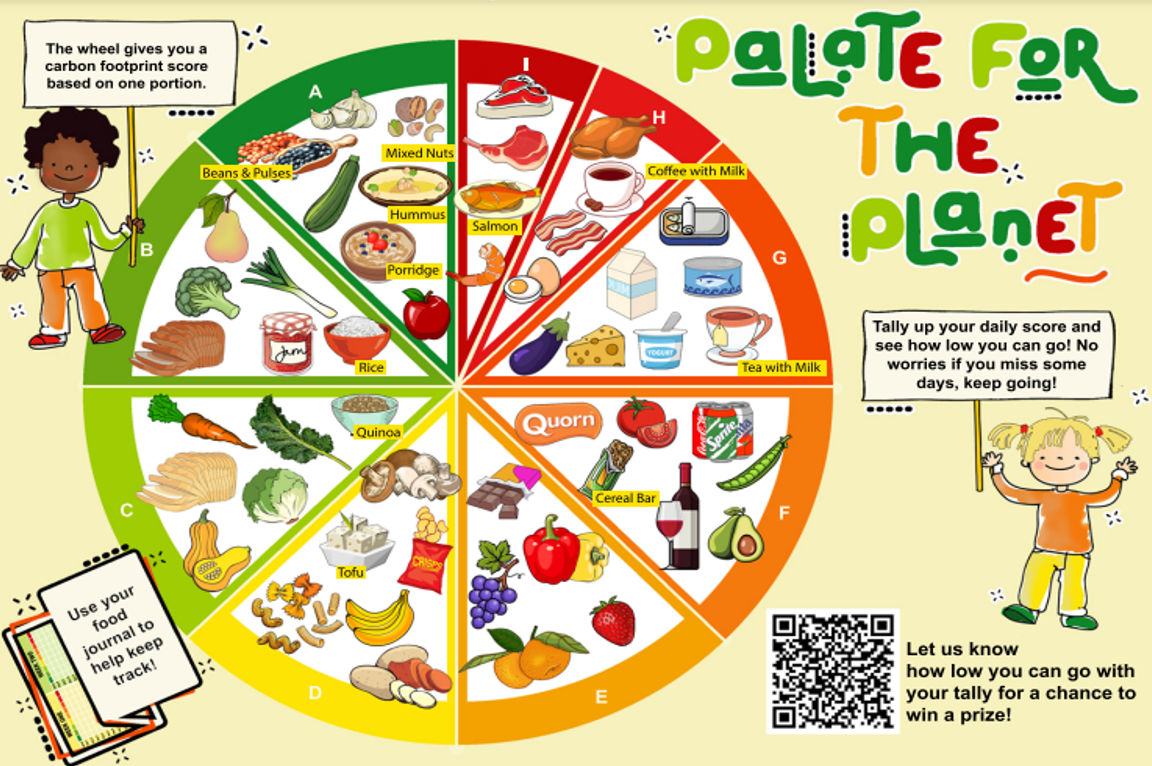UK Sustainability Challenge Pilot Project

-
Status of project
Completed -
Region
Europe -
Country
United Kingdom -
Topic
Public Engagement
With support from the Garfield Weston Foundation, BGCI delivered the UK Sustainability Challenge Pilot. This project aimed to create a series of small-scale challenges that allow botanic garden visitors to contribute to climate change goals and turn sustainability engagement into collective conservation action.
The pilot project worked with two UK botanic gardens who each developed a simple challenge that aimed to engage visitors with a particular sustainability topic. Each challenge involved a series of activities and resources in the garden to engage visitors. These were accompanied by a take home sustainability action for each individual to complete, thereby creating
sustainable behaviour changes.
Each garden produced a toolkit of resources enabling their challenge to be replicated and adapted by
other gardens.
Palate for the Planet
Oxford Botanic Garden’s activity looked at how a visitor’s carbon footprint is linked to their food choices. Their aim was to educate participants with representative values about the carbon footprints of the 50 most consumed food items in the UK and provide some common ‘greener’ replacement items. They hoped that participants would lower the total value of their carbon footprint over the two-week challenge period, primarily by reducing their meat intake and eating more of a plant based
diet but also by choosing food that was both seasonal and local.
Oxford’s evaluation process involved a pre-challenge questionnaire to establish a baseline and an introduction to the activity. Final data and post evaluation questionnaires were collected via an online form on the gardens’ webpage.
Oxford botanic garden designed a resource entitled Palate for the Planet that explores the carbon footprints of food. This resource was made up of a leaflet with infographics, activities and a tally chart. A second resource was an A4 poster, designed to be stuck on a fridge, with a wheel. This wheel focussed on the 50 most commonly consumed items in the UK and some lower carbon footprint alternatives and displayed them in nine categories, from the lowest to the highest carbon footprint.
Participants were asked to tally how many items from each section of the chart they ate over a two week period and submit their data at the end using a QR code provided on all resources.

Plant Warriors
The Cambridge University Botanic Garden challenge involved a shopping simulation where individuals could choose what plants they were interested in buying. They would then be offered a sustainability score based on the plants they had chosen and an explanation of the colours provided on the plant labels (this was a colour scale showing best to worst). With increased awareness of sustainability considerations, participants were then able to choose which plants they wanted to ‘purchase’.
The aim of this challenge was to showcase sustainable practices within the horticultural industry and allow
visitors to think critically when purchasing a plant.
The exhibition contained informational posters on six key topics, highlighting the type of things to look for when considering the sustainability of plant care and the wider horticulture industry. The exhibition contained a range of common and unusual houseplants along with information about their sustainability score, and how this score could be improved – i.e. correct placement of plants, signing up to a sustainable energy supplier, using rainwater/greywater, etc.). The exhibition posters allowed
visitors to find inspiration for their own indoor gardens.
The evaluation process involved a pre and post survey. In addition, the visitor’s shopping list was collected to look at behaviour change and see if ’purchasing’ habits changed following the information that was provided. The garden also used an interactive pledge system where visitors could place a token into a pledge box of an action they would take when they got home to be more sustainable.
